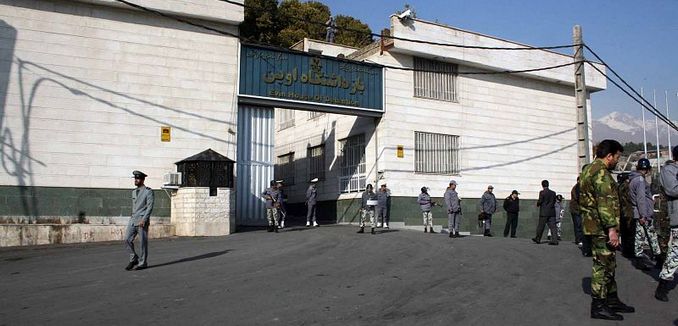The United States Commission on International Religious Freedom had already last May identified Iran a as “tier 1 country of particular concern,” citing among other things the case of American pastor Saeed Abedini, a Christian leader who had already been imprisoned over 200 days. News began to emerge over the weekend that – half a year later – Abedini is being transferred to Rajai Shahr Prison, which the Associated Press describes as “an extremely brutal facility populated by Iran’s most violent criminals with excessive rates of inmate-on-inmate violence.” Lawmakers blasted the announcement:
Transfer to Karaj, customarily used to house violent criminals, has all too frequently been a de facto death sentence for political prisoners. “We believe this new action by the Iranian regime merits additional response. It is imperative for the United States government to speak out boldly on behalf of Pastor Saeed, at the earliest possible opportunity,” according to the letter, signed by Idaho Sens. Mike Crapo and Jim Risch.
The developments are bound to deepen concerns that Iran is deepening its persecution of political and religious prisoners. The United Nation’s special rapporteur on human rights in Iran had reported weeks ago that there have been no fundamental improvements in Iran’s human rights situation since the election of Iranian president Hassan Rouhani. Instead a wave of executions had already caused Iranian dissidents to declare the “end of reform.” Rouhani had appointed as his justice minister Mostafa Pour-Mohammadi, a figure despised by human rights advocates and anti-regime dissidents for helping to oversee the 1988 executions of thousands of political prisoners. Rouhani, himself a revolutionary-era cleric, has a history of advocating the mass roundup and imprisonment of dissidents.
More than eighty Iranian prisoners have recent gone on a hunger strike to protest a lack of medical care:
Among them are human rights lawyer Abdolfattah Soltani, who began a hunger strike in Tehran’s Evin prison on November 1 in protest at the authorities denying adequate medical care to dozens of sick prisoners there, it said. “Two days later, about 80 prisoners also started a three-day strike in Rajaishahr prison, near the city of Karaj, west of Tehran,” the statement said.
The hunger-strikers are denouncing security service “interference” during prisoner transfers to hospitals and the refusal of the authorities to meet costly medical bills. “Authorities seem to be seeking revenge against prisoners of conscience for exercising their rights,” said FIDH president Karim Lahidji.
The statement also described “torture during pre-trial detention and harsh sentences after extremely unfair trials” and stated that “the Iranian authorities are silently preparing the death of prisoners of conscience.”
It came on the same day as Radio Free Europe/Radio Liberty reported that another 12 Iranian prisoners had been executed amid what the outlet described as “a surge in the use of the death penalty there.”
[Photo: sabzphoto / Flickr]




